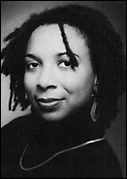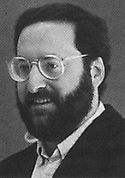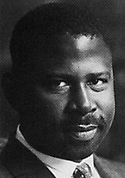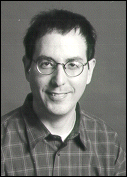
The Law Faculties of Columbia University in the City of New York, the
University of Amsterdam and Leiden University announce that the thirty-ninth
Summer Program in American Law will be offered at The University of Amsterdam
from July 2 through July 28, 2001.
Since 1963 these summer courses are held alternately at the Leiden Law School and at the Amsterdam Law School and are designed to provide a general introduction to the American legal system with emphasis on areas of particular interest to European lawyers.
If you are interested in following a single course offering rather than the entire program during this year's session, please contact the Program administration for enrollment and other information.
Preface Introduction Sponsors Curriculum Class Schedule Faculty Enrollment
Since 1963 the faculty of Columbia Law School, in
cooperation with our partners in the law faculties of Amsterdam and Leiden,
have offered this Summer Program in American Law to introduce our legal system
to students from the world over. We have learned a great deal in thirty-eight
years about how to present a combination of basic material and advanced legal
analysis to young lawyers from other systems. They, in turn, have taught us a
great deal about our craft of teaching and, through their questions and
discussions, about our law.
This coming summer my colleagues will return to
Amsterdam with an extraordinary program of offerings. In addition to our
required introductions to civil litigation and constitutional law, we will
present our cutting-edge introduction to researching American law. This
course, which has been under development for several years and has been
refined through presentation in a variety of settings, offers what we at
Columbia believe is the most effective route to rapid mastery of the materials
of our law. Through explanatory lectures and hands-on training we can afford
students and practitioners who need the ability to find US law a range of
skills that we think are available nowhere else in a short course. For those
considering an LLM degree in a US law school, whether at Columbia or
elsewhere, we believe these offerings provide an invaluable foundation to make
your LLM study more successful and rewarding.
Along with this expanded basic curriculum, we will
present a wide range of elective courses exploring fast-developing areas of US
law. From the current derivative technology in the securities markets to to
the legal revolution sparked by the Internet, scholars studying and
participating in current legal change will be bringing you the newest
developments, and the context in which to understand them. Students and young
practitioners interested in these areas will find both a comprehensive survey
of US law as it stands, and also an opportunity to discuss forthcoming
developments with professors who are among those best placed to observe and
affect them.
One of the unique features of American legal
education has always been the give-and-take of classroom discussion. My
colleagues from the Columbia faculty volunteer to participate in the Program
because of the excitement it offers them as teachers, giving them a chance to
bring their style of class discussion to a different and fascinating range of
students. We urge you to come to meet us in Amsterdam in July 2001, to be part
of a Program that is in its second generation of achieving extraordinary
results, for participants and faculty alike.
Kendall Thomas
Executive Director
For many years, substantial financial contributions to our Program have come from American foundations and major American law firms active in the international area. Their support confirms their dedication to law and legal education and testifies to their belief in the importance of fostering intellectual and professional ties among persons trained in diverse legal systems.
We are also most grateful for the financial support we receive from Dutch law firms. Their contributions have introduced in the Netherlands a new form of sponsorship which, traditionally, is one of the most important means of financing legal education in the United States. The contributing law firms are:
Boekel de Nerée
Derks Star Busmann Hanotiau
Loeff Claeys Verbeke
Pels Rijcken Droogleever Fortuijn
Stibbe Simont Monahan Duhot
Barents & Krans
The example given by our American contributors has prompted generous support by a number of European foundations and corporations as well. We are indebted to the following organizations for their financial support in 2001:
The constant support we receive is evidence of the truly international spirit of our Program. The organization, instruction and financial support all come from American and European sources. The Program is thus in its very essence a most promising testimony to what truly international co-operation can achieve.
To assure a shared basic knowledge, Civil Procedure,
Constitutional Law, and Legal Research are compulsory courses for all
participants. In addition, each participant is required to enroll in at least
three elective courses: Labor Law, Internet Law, Equal Protection, or
Derivatives.
As the number of participants in an elective course
may be limited, applicants are requested to list on the registration form all
available electives in order of their preference.
Civil Procedure
Dean Ellen Chapnick
This course provides an overview introduction of the
private-law litigation system in the United States. Primary topics are: the
structure and interrelation of U.S. state and federal courts, procedural
mechanisms of litigation control, and the unique civil procedure associated
with the distinctively American institution of the civil jury trial. Intensive
attention will be paid to the analytical process of reading American case
decisions.
Legal Research
Charles Cronin
This course uses print and electronic research practices to introduce
participants to the textual sources of American law. Focusing on the processes
that produce statutes, case reports and regulations, as well as their
dissemination in print and electronic forms, the course shows how to become a
proficient researcher in American legal material. Students will learn the
basic tools of the practicing attorney and the skills of finding and merging
texts in particular situations to provide an accurate basis for analysis and
decision-making. The course will also review lawmaking and publishing from a
comparative viewpoint, so that the distinctive requirements of American legal
research can be emphasized.
Constitutional
Law
Professor Kendall Thomas
This is the basic course in constitutional law, a foundation for more specialized courses on the Constitution and for public law courses generally. The course locates the Constitution in the life of the United States. It explores: the theory of the Constitution and its antecedents, judicial review, its justification and development, and its legal and political significance; the nature of our federal system, the growth of national power and of limitations on state authority, and the abiding significance of the states; the separation of the powers and varieties of checks and balances in the U.S. government; and the theory and content of individual rights under the Constitution, the development of the principal rights during 200 years by Constitutional amendment and judicial interpretation, and the jurisprudence of the Judiciary in its role as the guardian of rights under the Constitutions and civil rights act.
Labor Law
Professor M. Barenberg
The course examines federal regulation of private
sector labor management conflict, with particular focus on the National Labor
Regulations Act. Specific topics include: the organization and recognition of
unions, collective bargaining, the right to strike, and the relationship of
workers to their union. The central aspects of the collective bargaining
regime in the private sector and under federal labor statutes and the
Constitution, including: the protection of employee rights to organize unions:
the process of collective bargaining; the scope of union and employer direct
action, including strikes, boycotts, picketing, and lockouts; the
administration of the collective bargaining agreement and the role of labor
arbitration; the relationship between union and workers. Examination of the
leagl doctrine in light of two broad questions: To what extent does or should
the law enhance employee participation in workplace decision making? Does the
current labor law regime effectively implemnet a desirable model of workplace
relations?
Derivatives
Professor David Schizer
Equal Protection
Professor Kimberly Crenshaw
Internet Law
Professor Eben Moglen
This course considers the legal significance of the development of computer-assisted communications, including the network of computer networks known at the Internet. American law has begun to adjust to conditions created by technological changes that the rest of the world will experience in the next decade. The goal here is to present the American experience, along with some social theory helpful in understanding the relation between rapid technological change and the legal system's response. Topics covered will include the law of encryption, secrecy and anonymity; the effect of computer-assisted communication on contracts rules and private international law; new challenges to the viaibility of the intellectual property system; and the application of competition law to the new technological environment. No prior experience with the Internet is required, but students will get a quick hands-on introduction to some of the technology in question. A full syllabus, with all the required and optional course reading attached, is available here.
| first week July 2 |
second week July 9 |
third week* July 16 |
fourth week** July 23 |
|
| 09.30 - 10.30 | Civ. Pro. | Civ. Pro. | Derivatives | Derivatives |
| 11.00 - 12.00 | Labor Law | Labor Law | Internet Law | Internet Law |
| LUNCH | ||||
| 2.00 - 3.00 | Research | Research | Equal Prot. | Equal Prot. |
| 3.30 - 4.30 | Con. Law | Con. Law |
* On Monday, July 2, 2001 there will be a reception,
starting at 7:00 p.m.
** On Wednesday July 18, 2001 a simulated jury trial
will be conducted.
*** On Friday July 27, 2001 a farewell dinner will
conclude the Program.
Kimberly Crenshaw
Professor of Law

J.D., Harvard, 1984; LL.M., Wisconsin, 1985. Has lectured and written extensively on civil rights, Black feminist legal theory, and race and the law. A founding member of the Critical Race Theory workshop; co-editor of Critical Race Theory: A Reader. Her work has appeared in Harvard Law Review, National Black Law Journal, Stanford Law Review, and Southern California Law Review. Serves on the governing board of the Law and Society Association and the Society of American Law Teachers. As a specialist on legal issues confronting Black women, assisted the legal team that represented Anita Hill. A frequent commentator on political and cultural issues and an international lecturer. Twice honored as Professor of the Year at UCLA Law School; lectured throughout the national and international community with recent visits to South Africa, Brazil, Spain, France, Germany, and Holland.
Mark Barenberg
Professor of Law

B.A., Harvard, 1977; M.Sc., London School of Economics, 1978; J.D., Harvard, 1982. Editor, Harvard Law Review, Graduate Study in Economics and History, Harvard University. Taught social theory, comparative economic history, and international economics at Harvard University, 1979-82. Law clerk to Eugene H. Nickerson, U.S. District Judge, Eastern District of New York, 1982-83. Practiced in the areas of labor, constitutional, and international law at the firm Rabinowitz, Boudin, Standard, Krinsky & Lieberman. Joined the Columbia faculty in 1987. Visiting professor, Yale, 1997; Peking, 1995. Member, Law and Society Association; Industrial Relations Research Association. Principal areas of interest are in labor and employment law, constitutional law, civil rights, economic democracy, legal and political theory, global economic institutions, and the law of economic development and political transitions. Publications include "The Political Economy of the Wagner Act," (1993); "Democracy and Domination in Labor Law," (1994); "Labor Rights Across Borders: Lessons from U.S. Federalism," (1996); "Labor Law and the Global Economy" (1997); "Economic Involvement Programs," (1998); "Constitutional Barriers to Redistribution," (1999); "Regulatory Competition and Coordinated Decentralization," (2000); "Group Representation in the US, EU, and International Organizations," (forthcoming 2001).
Ellen Chapnick
Assistant Dean
Assistant Dean Ellen P. Chapnick is the founding director of the Center for Public Interest Law at Columbia Law School. She joined Columbia after 20 years as a federal litigator including as the senior partner responsible for the environmental law department at Wolf Pepper Ross Wolf & Jones where, among other matters, she served as a plaintiff's lawyer in the Exxon Valdez Oil Spill Litigation, for which she and her co-counsel shared the Trial Lawyers for Public Justices 1995 Trial Lawyer of the Year Award. Dean Chapnick also was a staff attorney for federal litigation at the Puerto Rican Institute for Civial Rights in Puerto Rico and various labor unions.
Her recent pro bono work includes being co-president of the Center for Constitutional Rights, co-chairing the Court as Employer Subcommittee of the Second Circuit Task Force on Gender, Racial and Ethnic Fairness, and serving on the Association of American Law Schools Task Force on Pro Bono and Public Service Opportunities, of which she is the chair-elect. Dean Chapnick has received the 1997 Pro Bono Publico Award from Pro Bono Students America and a 1998 award in recognition of outstanding pro bono publico service from the Legal Aid Society of the City of New York. She is the author of several articles and the Access to the Courts chapter in the ABA's The Law of Environmental Justice.
Dean Chapnick is an honors graduate of the Georgetown University Law Center and Cornell University, College of Arts and Sciences.
David Cronin
Kendall Thomas
Professor of Law
Executive Director

B.A., Yale, 1978; J.D., 1982. Joined the Columbia faculty in 1984. Principal areas of interest: constitutional law, theory and history, law and sexuality, and Critical Race Theory.
Eben Moglen
Professor of Law
Executive Director

B.A., Swarthmore, 1980; J.D., M.Phil., Yale, 1985; Ph.D., 1993. Articles editor, Yale Law Journal. Law clerk to Judge Edward Weinfeld, Southern District of New York, 1985-86, and to United States Supreme Court Justice Thurgood Marshall, 1986-87. Joined the Columbia faculty, 1987. Principal areas of interest are Anglo-American legal history, constitutional law, computers and free expression, and intellectual property. Publications include Anarchism Triumphant: Free Software and the Death of Copyright, First Monday, August 1999; The Invisible Barbecue, 97 Colum.L.Rev. 945 (1997); Considering Zenger: Partisan Politics and the Legal Profession in Colonial New York, 94 Colum.L.Rev. 1495 (1994).
David Schizer
Associate Professor of Law

B.A., 1990, M.A. (history), 1990, J.D., Yale, 1993. Executive editor, Yale Law Journal. Law clerk to Judge Alex Kozinski, U.S. Court of Appeals for the Ninth Circuit, 199394. Law clerk to Justice Ruth Bader Ginsburg, Supreme Court of the United States, 199495. Practiced law in the tax department of Davis Polk & Wardwell, New York, 199598. Currently serves on the executive committee and as co-chair of the Committee on Financial Instruments, N.Y. State Bar Association Tax Section. Joined the Columbia faculty in 1998. Recent publications include "Executives and Hedging: The Fragile Legal Foundation of Incentive Compatibility," 100 Colum. L. Rev. 441 (2000); "Debt Exchangeable for Common Stock: Electivity and the Tax Treatment of Issuers and Holders," Derivatives Report (March 2000).; "Realization as Subsidy," 73 N.Y.U. L. Rev. 1549 (1998); and "Hedging Under Section 1259," 80 Tax Notes 345 (July 20, 1998). Currently teaches federal income taxation, the taxation of financial instruments, and corporate tax.
Admission Requirements
Eligible for the Summer Program are law graduates, who
are professionally active in the practice of law, industry, commerce,
government, international organizations or related activities. Advanced
undergraduate law students may be admitted in exceptional cases.
Applications for admission and scholarships
are invited before May 31st,, 2001:
University of Amsterdam
P.O. Box. 1030
1000 B.A. Amsterdam
The Netherlands
Tel: (+31) 20-525-3359
FAX: (+31) 20-525-3360
Language and Method of Instruction
Proficiency in English is required of all participants.
Classes will be conducted in English, in the manner customary at the Columbia
Law School. Participants will be called upon in class to discuss the materials
previously assigned to them. In describing in your application your schooling
and proficiency in the English language, you are requested to be as specific
as possible and to give a frank evaluation of your ability to study and
discuss American legal materials. Your objectivity in this respect will avoid
subsequent disappointment. Having passed a TOEFL test is one of the ways in
which you can indicate your proficiency in English.
Classes
Participants will receive due notice of any changes in
the curriculum that may prove to be necessary. Each participant is required to
take courses in Constitutional Law, Statutes & Regulations and Civil
Procedure, and at least three elective courses. Since the number of
participants in each elective course may be limited, applicants are requested
to state four elective courses in order of their preference. Ten hours of
classroom discussion are scheduled for each course. Participants are required
to attend all classes in the courses for which they have registered. Adequate
preparation is expected of each participant. Upon completion of the Program, a
certificate of attendance will be issued to all participants who have met
these requirements. There will be no final examination.
Attendance
Attendance of classes is compulsory. Failure to attend
classes will result in withdrawal of the right to receive the certificate, at
the discretion of the Board of Directors.
Study materials
In most courses, participants will be provided with
casebooks of the kind used in American law schools. In some courses, only
mimeographed materials will be distributed. Study materials will be
distributed upon registration on Sunday, July 1, 2001.
Preliminary reading
Participants are advised to read: A. Farnsworth, An Introduction to the
legal System of the United States (Oceana Publications, New York) before
attending the Program..
Reading room and libraries
At the faculty building, where all classes will be
held, a special reading room is available to all participants. Participants
may consult the American law collection.
Expenses
Fee
A fee of three thousand Dutch guilders (Dfl. 3,000)
covers tuition, study materials for six courses, and all administrative
expenses, including those of the extra curricular activities and the farewell
dinner. Participants who have not yet graduated will pay a reduced fee of Fl.
1,500. Meals and lodgings will be charged separately.
Lodgings
All participants reside in student houses in Amsterdam. Under no
circumstances will payment for lodging be refunded. A price of about Dfl. 450
is charged for the duration of the Program.
Meals
On days on which classes are given, all participants
are expected to attend the lunches organized by the Program. The total amount
charged for 20 lunches is Fl. 500. As a rule, friends or relatives cannot be
admitted to the lunches. No other meals will be provided. Upon registration
each participant will be supplied with a list of suitable restaurants in
Amsterdam.
The total amount charged for tuition, lunches and
lodging will be approximately 3950 Dutch guilders (students Dfl. 2450).
Scholarships
A limited number of scholarships is available for
participants unable to raise the necessary funds on their own or with the help
of their employer, family or friends. The scholarships may cover a) tuition,
b) lodging, c) lunches, or d) combinations of these, but on no account do they
cover travel or personal expenses. When applying for a scholarship, please
indicate the absolute minimum amount necessary to enable you to participate,
and the reasons why you have no alternative but to apply to the Program for
financial assistance. Applicants eligible for scholarships under arrangements
between their respective governments and the government of the Netherlands
must address themselves directly to the appropriate authorities in their own
country.
Moreover, please note that students from certain
countries (e.g. Germany) may apply for scholarships in accordance with
arrangements between their respective governments and the government of The
Netherlands. In such cases applicants must address themselves directly to the
appropriate authorities of their own country.
Hans Smit
Scholarship
In honor of Hans Smit, Stanley H. Fuld Professor of
Law, Columbia University, who initiated the Leyden-Amsterdam-Columbia Summer
Program in American Law in 1963, a special scholarship has been established.
Each year one promising candidate will be selected who would not be able to
attend without financial assistance. The Hans Smit Scholarship covers tuition,
lodging, meals, and pocket money.
Administrative matters
Arrival and registration
It is imperative that all participants arrive on
Sunday, July 1, for the purpose of registration and allocation of housing,
between 12.00 - 6.00 p.m. The location of the registration desk will be
announced in due course. In the evening from 8.00 p.m. onwards an informal
gathering will take place for the participants, the Directors of the Summer
Program, faculty members and staff. All participants are requested to attend
this meeting.
Inaugural session
The inaugural session will take place on Monday, July
2, 2001, from 8:00 p.m. on. The inaugural session will be followed by a
reception for participants, faculty members, and invited guests.
Extra Curricular activities
(Subject to change)
Saturday, July 7 Excursion
Friday, July 13 Excursion
Wednesday, July 19 Moot Court
Saturday, July 21 Excursion
Friday, July 27 Farewell
Office of the Program
During the course, an information desk will be available.
For information regarding the 2001 Amsterdam session, please refer to:
University of Amsterdam
Amsterdam Law School
Columbia Summer Program
P.O. Box 1030
1000 BA Amsterdam
The Netherlands
Executive Directors
K. Thomas, Professor of Law Columbia University
E Moglen, Professor of Law Columbia University
Coordinator
Board of Directors
E.A. Alkema (Leiden)
M.V. Polak (Leiden)
G.A. Bermann (Columbia)
L.H.A.J.M. Quant (Amsterdam)
Th.M. de Boer (Amsterdam)
J.W. Zwemmer (Amsterdam)
E. Moglen (Columbia)
C. van Raad (Leiden)
W. Simons (Leiden)
K. Thomas (Columbia)